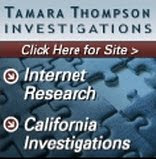The Pew Report makes this wry observation about fuzzy human logic:
Only 38% of users are aware of the distinction between paid or sponsored results and unpaid results. And only one in six say they can always tell which results are paid or sponsored and which are not. This finding is ironic, since nearly half of all users say they would stop using search engines if they thought engines were not being clear about how they presented paid results.
This disconnect between what people observe and what they think they observe got me reflecting on the widely noted fallibility of eyewitness testimony. One of the significant findings Elizabeth Loftus made was the weak correlation of confidence to accuracy. Even as event details deteriorate the witness maintains a high degree of confidence in the accuracy of their recall. James Doyle, Loftus' co-author of Eyewitness Testimony: Civil and Criminal writes here about the intersection of the psychological and legal work. A detailed, hands-on guide to working with this quandary in criminal defense matters is developed in a recent article by Lisa Steele, Trying Identification Cases.




